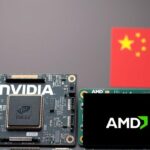
Tide Achieves Unicorn Status with India’s SMB Support
UK Fintech Tide Becomes Unicorn with TPG’s Backing UK-based fintech company, Tide, has achieved unicorn status, propelled by its significant user base among India’s small...


UK Fintech Tide Becomes Unicorn with TPG’s Backing UK-based fintech company, Tide, has achieved unicorn status, propelled by its significant user base among India’s small...

VC Hiring Trends: Beyond the MBA Degree Venture capital firms are evolving, and so are their hiring needs. While MBAs remain valuable, a broader range...
Silicon Valley Bets Big on ‘Environments’ to Train AI Agents Silicon Valley is making significant investments in simulated “environments” to enhance the training of artificial...

Cyberattack Disrupts Flights at Heathrow and Other Airports A recent cyberattack caused significant disruptions and delays at Heathrow Airport and several other airports. Hundreds of...

TikTok Deal: White House Reveals More Details The White House has recently provided additional information concerning a potential agreement involving TikTok, the popular video-sharing application....

Tech Giants to H-1B Employees: Remain in the US Amazon, Google, and Microsoft have all cautioned their H-1B visa employees to remain within the United...

How Gen Z Raised $8M for Phia Using Modern Methods Phoebe Gates and Sophia Kianni harnessed the power of Gen Z engagement strategies to raise...